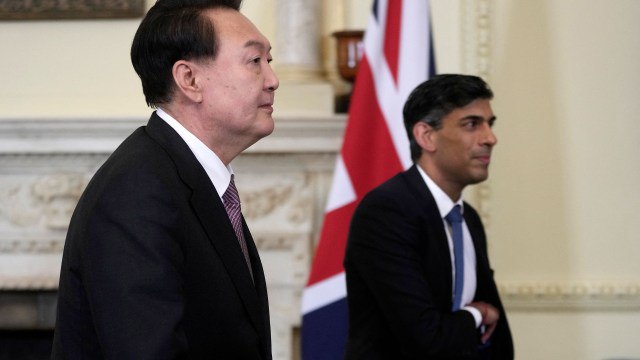2024-05-20 View 1222
[Press Release]Only global AI standards can stop a race to the bottom

Only global AI standards can stop a race to the bottom
The UK Prime Minister and South Korea's president write exclusively for i on the risks and triumphs of AI
AI is changing the world around us. It has the potential to help us cure diseases, fight climate change, revolutionise public services, and improve peoples’ lives. Together, we are determined to seize the potential of this technology to transform the world for the better.Take one example: the Korean company LUNIT is working with the UK’s National Health Service on a trial of AI-powered breast cancer detection, which promises to improve the accuracy and speed of diagnosis. We all know how vital early detection is – so just imagine what improvements here could mean for millions of women and their families.
That’s why we are convening world leaders and CEOs at the AI Seoul Summit on 21 and 22 May – building on the conversation we kick-started at Bletchley Park in November. We believe realising the full potential of AI requires three vital ingredients.
First, innovation. The incredible progress we have seen in recent years comes from creative thinking, combined with careful research, experimentation, and a willingness to find new solutions to old problems. Government can foster this innovation by investing billions, boosting cutting-edge research in our world-class universities, and ensuring that we do not overregulate the start-ups that could produce the next big idea.
Second, safety. We know that, as with any new technology, AI brings new risks, including deliberate misuse from those who mean to do us harm. However, with new models being released almost every week, we are still learning where these risks may emerge, and the best ways to manage them proportionately. At Bletchley, we agreed governments must play a role in evaluating these risks and we are already putting that into practice.
When we meet with companies at the AI Seoul Summit, we will ask them to do more to show how they assess and respond to risk within their organisations. We will also take the next steps on shaping the global standards that will avoid a race to the bottom.
Third, inclusivity. We must ensure AI works for all. The Bletchley Declaration brought together countries from all corners of the globe. Since then, the UN General Assembly has passed its first ever resolution on how we manage AI globally. At the AI Seoul Summit, we must commit to working together with a wide range of partners to ensure AI helps tackle global challenges such as poverty and climate change.
Although positive efforts have been made to shape global AI governance, significant gaps still remain. The AI Seoul Summit will help to create a vision for AI governance which deals with those gaps, while promoting the fundamental priorities of innovation, safety, and inclusivity.
It is just six months since world leaders met at Bletchley, but even in this short space of time, the landscape of AI has changed dramatically. The pace of change will only continue to accelerate, so our work must accelerate too. We will not stop at the AI Seoul Summit – we will continue to collaborate across the full range of AI issues for the years to come. An exciting future awaits: we’re determined to seize it together.
